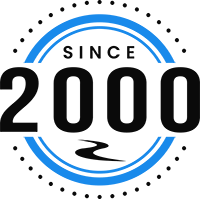Cybersecurity Month: Part Three
October is National Cybersecurity Awareness Month. To close out the month, Brave River is publishing a multi-part blog post to educate our customers on cybersecurity threats and prevention. The first post in this series introduced the motivations and common methods of hackers, and the second post covered what to do if you’ve been hacked. If you missed them, be sure to follow the links to check them out.
Prevent cyber attacks
Given the methods of hackers and what little can be done to minimize loss after a cyber attack, it’s clear that prevention is the best bet to secure both your personal and business computers. Consider these tips to help protect your system.
Don’t open suspicious content.

Emails that sound too good to be true are, 99% of the time, exactly that. Whether it’s a chain letter, a one-million-dollar opportunity in a far-away country, or simply a link to greatest FREE photo editing software you’ll ever find, all suspicious emails share a goal of taking advantage of you and/or infecting your computer. It’s unsafe to click them and especially detrimental to forward or spread them. Clicking on attachments may download viruses, and opening links in emails - or even just opening the email - may cause script in the HTML of the email body to run. Don’t take chances, and set your email program to block HTML by default.
Websites that claim your software is outdated are unsafe; websites are not able to detect this information unless given permission from the user to read their hard drive. Any updates to software should be made on the site of the official developer, and should be initiated by you or company’s IT Security provider. Never install software if you aren’t 100% sure of its security. And don’t trust pop-ups that tell you to call a mysterious phone number for immediate support.
Know and Backup Your Computer.
What apps are running in the background of your system? What programs are running at startup? Secure what you need, and trash what you don’t.
Likewise, always keep a backup of your files. It’s a huge mistake for businesses and individuals not to have their computer files backed up, and hackers know they can cause tremendous data loss this way, hence asking for expensive ransoms. Keep your files on an isolated hard drive (one separate from your local drive) or in the Cloud.
Secure Your Home Network.
If you’re using Wi-Fi at home, secure it by giving it a password that only users you know and trust will use.
Also be cautious of Fake Wireless Access Points when using other networks. Do not connect to a Wi-Fi hotspot if you aren’t completely sure of its authenticity.
Change Your Passwords Regularly.
Even before becoming infected, it can be beneficial to change passwords every few months. Changing passwords will remove access from anyone who might already have access to your accounts without your knowledge, though it won’t do much else to prevent hackers from obtaining it. Ultimately, it’s the strength of the password that protects your system the most. Check out our tips for creating a secure password.
Update Antivirus Software.
Viruses adapt to common defenses. Keeping antivirus software updated allows your software to keep-up with new threats and have a better chance at thwarting viruses before they enter.
Educate Others.
Take what you know and share it. Make it known that anyone can get hacked, and help friends, family, and employees recognize threats. Most people don’t realize that hackers can do more than just send out malicious emails. Educate your peers and business team alike to take caution. If you feel suspicious about an email you’ve received or want to keep up to date with latest cybercrime, HoaxSlayer is a good resource, as well as all major news sites.
Invest in Cybersecurity.
As long as companies have an internet presence, they will be a target for cybercrime. Minimize losses by investing in a professional IT Security Audit. Discovering your security vulnerabilities is the first step to fixing them and protecting your organization.


